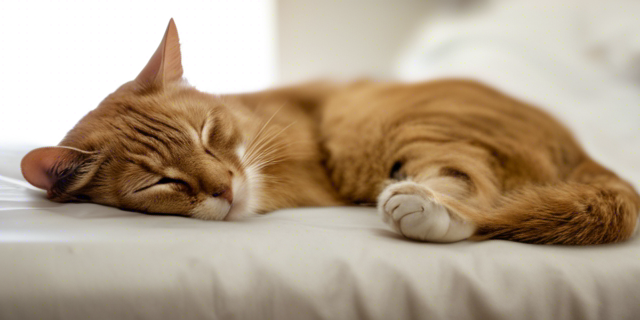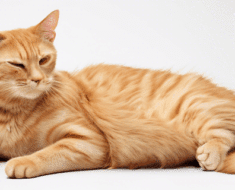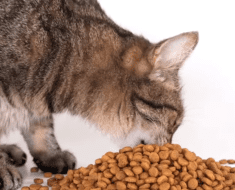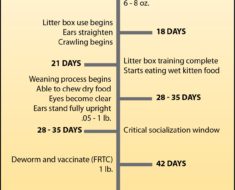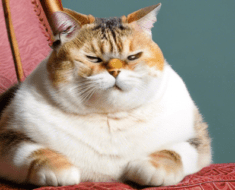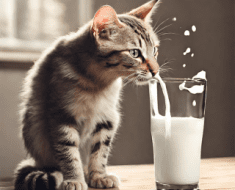Cats sleep a lot due to their natural behavior patterns and need for rest. It’s completely normal for your feline friend to spend a significant portion of the day snoozing.
Cats are crepuscular animals, meaning they are most active during dawn and dusk, contributing to their frequent napping habits. Additionally, cats can sleep for long periods because they are natural predators with bursts of energy followed by extended rest periods.
Factors such as age, health, diet, and environment also influence a cat’s sleep patterns. Providing a comfortable and safe space for your cat to rest, along with regular playtime and mental stimulation, will help ensure they get the rest they need while enjoying a healthy and happy life.
The Cat’s Sleeping Behavior
Understanding your cat’s sleeping habits can give you insight into their overall health and well-being. Cats are known for their love of napping, but excessive sleep can sometimes cause concern.
Normal Sleeping Patterns
Cats can sleep up to 16 hours a day, with most of their rest happening in short naps. Kittens and senior cats may sleep even more. This behavior is a natural part of a cat’s lifestyle, allowing them to conserve energy for hunting and play.
Factors Affecting Sleep
- Poor diet and lack of exercise
- Stress or anxiety
- Underlying health issues
Observing your cat’s sleeping patterns and making adjustments can help ensure they are getting the rest they need for optimal health.
Understanding Cat Physiology
Comparison To Wild Cats
Cats, both domestic and wild, are known for their long periods of sleep. This behavior is deeply ingrained in their physiological makeup, stemming from their evolutionary history as hunters. Domestic cats share many physiological similarities with their wild counterparts, such as the ability to conserve energy efficiently.
The Role Of Energy Conservation
Energy conservation is essential for feline survival, and cats have adapted to remain highly efficient in this aspect. Cats in the wild, such as lions and tigers, conserve their energy by sleeping for long stretches during the day and reserving their energy for hunting during the night. This natural behavior of conserving energy is also observed in domestic cats, reflecting their intrinsic instincts inherited from their wild ancestors.
Feline Sleep Cycles
Ever wondered why your cat seems to be sleeping all day long? Well, cats are known for being champion sleepers, spending up to 16 hours a day snoozing away. But have you ever wondered what goes on inside their furry little heads during all that shut-eye? Let’s dive into the fascinating world of feline sleep cycles and unravel the secrets behind your cat’s love for napping.
Rem Sleep
One of the key stages of a cat’s sleep cycle is called REM sleep. REM, which stands for Rapid Eye Movement, is the phase when your cat is in their deepest sleep. During this stage, you may notice your cat’s eyes darting around beneath their closed eyelids, as if they were watching a fast-paced dream. REM sleep is essential for your cat's overall well-being, as it helps to consolidate memory and stimulate brain activity.
Deep Sleep Vs. Light Sleep
There are two types of sleep that cats experience: deep sleep and light sleep. During deep sleep, also known as slow-wave sleep, your cat’s brain waves slow down, and their body relaxes completely. This is usually when they are difficult to wake up. On the other hand, light sleep is a more shallow state of rest, where your cat’s body remains somewhat alert. They may twitch their whiskers, and paws, or even let out soft chirping sounds in this stage. While deep sleep is vital for your cat's physical rejuvenation, light sleep helps them stay vigilant to potential dangers even while they're resting.
Cats have evolved to be highly efficient sleepers, and their sleep patterns are deeply ingrained in their DNA. Understanding their sleep cycles can help you better grasp the feline mind and why your cat is seemingly always catching some Z’s. So, the next time you see your cat snoozing away, remember that they are simply following their innate sleep-wake rhythm, ensuring they are ready for their next adventure when they finally wake up.
Environmental Influences On Cat Sleep
As pet owners, we may often wonder why our feline companions seem to spend an exorbitant amount of time snoozing. While it is natural for cats to sleep for extended periods, various environmental factors play a significant role in determining their sleep patterns. Understanding these influences can help us create a comfortable and soothing environment that promotes healthy rest for our beloved pets.
Temperature Preferences
Cats are highly sensitive to temperature changes and have individual preferences when it comes to their sleeping space. Providing an environment with an optimal temperature is crucial for your cat’s sleep quality.
Some key considerations to ensure your cat’s comfort in terms of temperature include:
- Keeping the sleeping area away from direct sunlight or drafts.
- Providing a warm spot during colder months, such as a cozy blanket or a heated bed.
- Avoid overheating by maintaining a cool and well-ventilated area during warm weather.
Comfort And Security
Apart from temperature, providing your cat with a comfortable and secure sleeping environment can greatly impact their sleep habits. Cats tend to seek out places that make them feel safe and relaxed, so it is important to cater to these needs.
Here are some ways to enhance the comfort and security of your cat’s sleeping area:
- Offer a cozy and secluded spot where your cat can retreat undisturbed, such as a cat tree or a designated bed.
- Provide soft bedding made of materials that your cat finds comfortable, taking into account their preferences for softness or firmness.
- Ensure the sleeping area is clean and free from any potential sources of discomfort, such as pests or irritants.
- Place the sleeping area in a quiet part of your home to minimize noise disturbances that could disrupt your cat’s rest.
Remember, creating a serene and comfortable sleeping environment for your cat will not only contribute to their overall well-being but also promote a happy and rested feline companion. By understanding their temperature preferences and ensuring a safe and cozy space, you can play a significant role in helping your cat achieve quality sleep.
Health Implications Of Excessive Sleep
Excessive sleep in cats can sometimes be a cause for concern when it comes to their overall health. While it’s normal for cats to sleep a lot, abnormal sleep patterns can be indicative of underlying medical issues. In this section, we’ll explore the health implications of excessive sleep in cats, including signs of abnormal sleep patterns and medical conditions that can impact their sleep.
Signs Of Abnormal Sleep Patterns
Cats typically sleep for 12 to 16 hours a day, but if you notice that your furry friend is excessively lethargic, sleeping even more than usual, or struggling to stay awake, these could be signs of abnormal sleep patterns.
Medical Conditions Impacting Sleep
- Kidney disease
- Diabetes
- Hyperthyroidism
- Anemia
- Feline immunodeficiency virus (FIV)
These medical conditions can impact a cat’s sleep, leading to excessive tiredness and lethargy. If you notice any of the signs of abnormal sleep patterns or suspect that your cat’s excessive sleep may be related to a medical condition, it’s important to consult with a veterinarian for a proper diagnosis and treatment.
How To Promote Healthy Sleep In Cats
If you’ve ever wondered why your cat spends most of its day napping, you’re not alone. Cats are known for being expert sleepers, spending up to 16 hours a day snoozing away. But just like humans, cats can also experience sleep disturbances and insomnia. That’s why it’s important to create a calm environment and provide engagement and stimulation for your feline friend to promote healthy sleep habits. Let’s explore these two aspects in more detail:
Creatin
Distinguishing Between Normal And Excessive Sleep
Understanding why your cat sleeps so much can help you ensure their overall well-being. Distinguishing between normal and excessive sleep patterns in cats is crucial for their health.
Tracking Sleep Hours
Average cats sleep 12-16 hours per day, increased for kittens and senior cats. Monitor your cat’s sleep habits to identify any sudden changes or unusual behavior.
Consulting A Veterinarian
Seek professional advice if you notice your cat sleeping excessively or showing signs of distress. A veterinarian can help identify any underlying health issues causing abnormal sleep patterns in your cat.
Final Thoughts On Cat Sleep
Appreciating Feline Sleep Habits
Your cat’s extended sleep sessions may seem excessive, but it’s essential to appreciate that felines are naturally inclined to snooze for a significant portion of the day. These slumber patterns are deeply ingrained in their biology, attributed to their predatory nature and the need for energy conservation. Understanding and respecting your cat’s natural sleep habits is crucial in providing them with a comfortable and stress-free environment.
Enhancing Quality Of Life
Enhancing the quality of your cat’s life can be achieved by creating a conducive sleep environment. Ensuring they have access to comfortable bedding and secluded spots where they can rest undisturbed allows them to fulfill their innate sleep requirements. Additionally, a balanced diet, regular exercise, and mental stimulation are integral in providing a happy and healthy life for your furry companion. By recognizing the significance of your cat’s sleep and contributing to their overall well-being, you are actively promoting a fulfilling life for your feline friend.
Frequently Asked Questions Of Why Does My Cat Sleep So Much
Why Do Cats Sleep So Much?
Cats are natural hunters with high-energy bursts, followed by long periods of rest to conserve energy.
Is It Normal For Cats To Sleep All Day?
Yes, cats can sleep up to 16 hours a day, which is normal behavior. They are crepuscular animals, meaning they are most active at dawn and dusk.
How Can I Tell If My Cat Is Sleeping Too Much?
If your cat’s sleeping patterns change drastically or if they appear lethargic when awake, it may indicate an underlying health issue. Consult a veterinarian for advice.
What Can I Do To Help My Cat Sleep Better?
Providing a comfortable, quiet, and safe sleeping area, regular exercise, mental stimulation, and a consistent feeding schedule can help improve your cat’s sleep.
Do Older Cats Sleep More Than Younger Ones?
Yes, as cats age, they tend to sleep more and become less active. However, any sudden increase in sleeping time should still be monitored and discussed with a vet.
Conclusion
Cats need plenty of rest to stay healthy. However, excessive sleep could signal a health issue. Monitor your cat’s sleep patterns and consult a veterinarian if you’re concerned. By understanding your cat’s sleep, you can ensure they lead a happy and healthy life.
